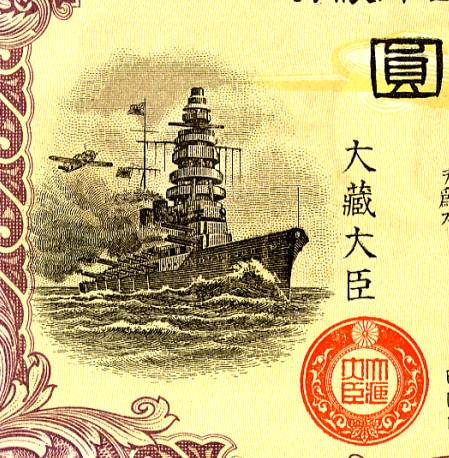Thanks to a reader.
When the fraudsters get on this You can say...saaay... *
From the Kingsport (TN) Times-News:
China has a secret: It owes American investors hundreds of billions of dollars.
The
Chinese government doesn't like to talk about it and the U.S.
government doesn't want to raise it. But decades ago, Beijing defaulted
on debt owed to Americans, as well as investors and governments around
the world. In one case, it was paid. In the rest it was not. More than
20,000 American investors own this debt. The U.S. government may also
own Chinese war debt, unpaid since World War II.
With the simple
stroke of an executive proclamation, President Barack Obama can begin
the process of addressing this issue. A 1930s-era law has established a
quasi-public agency within the Securities and Exchange Commission, known
as the Corporation of Foreign Securities Holders, which can arbitrate
this dispute, much as a predecessor agency did for decades. China can
both afford and benefit from this solution; it will afford goodwill at a
time when relations between the world's two superpowers are strained.
The story begins nearly 100 years ago, in 1913, when the government of
China began issuing bonds to foreign investors and governments for
infrastructure work to modernize the country. As the country fell into
civil war in 1927, paying these debts became increasingly difficult and
the government fell into default. Even so, in April 1938, the
Nationalist government of China began to issue U.S.-dollar denominated
bonds to finance the war against Japan's brutal invasion.
Locked
in a pitched battle for survival, the government issued these bonds into
1940. As part of its wartime financial aid, the U.S. government further
provided a $500 million credit to China in March 1942, shipping gold
there and helping to stabilize the currency. In return, it appears that
the U.S. government redeemed some of these dollar-denominated bonds. But
China doesn't appear to have repaid this debt either, according to
State Department records, and the declaration of the People's Republic
of China in 1949 ended decades of political, military and financial
cooperation.
While successor governments are usually bound by the
debts of predecessor governments, the new Communist government refused
to pay any of these claims. The issue lay dormant for decades, just as
the bilateral relationship did. Then, in 1979, as part of normalizing
relations, Washington released government financial claims regarding the
expropriation of American property and appears to have dropped the
matter of the war debt entirely. However, it is one thing for government
decision-makers to let go of government debt, however questionable that
is.
And it is entirely another thing for individual citizens to
press their claims. Some U.S. investors tried to sue the Chinese
government in the 1980s and 1990s. However, the Foreign Sovereign
Immunities Act makes it very hard for any U.S. citizen to sue a foreign
government in U.S. courts because the law generally says that U.S.
courts do not have jurisdiction....MORE
See our May 2009 post "
So a Sicilian mafioso walks into HSBC…":
....In a less sophisticated move, I once had a
slightly deranged money guy insist that his $1 Billion of Japanese
government bonds were good collateral. Here's one of the issues he
proffered, image via Scripophily.com:
Here's a close-up of the engraving:


Certificate Vignette
For
the longest time Carl Marks & Co. (or was it Herzog?) made markets
in defaulted bonds, for some reason I remember the Kingdom of Serbs,
Croats and Slovenes 8's of 1922.
It may have been a different S,C&S issue, I can't find any record of the paper. Off to Zagreb?
[try 'off too, Zagreb' -ed.]
Here's a quick story about this odd corner of the market, from Time Magazine, Aug 8, 1983:
...Foreign
bonds are riskier because it is difficult to force payment or arrange
settlements. The Wall Street firm Carl Marks & Co. is still
fighting a class-action suit against the People's Republic of China to
recover losses from Hukuang Railroad bonds issued by the imperial
Chinese government in 1911. Last year a U.S. district court in Alabama
ordered China to cough up to U.S. bondholders the unpaid principal plus
the interest that has been mounting at 5% annually, a total of $41.3
million. Marks also has two suits against the Soviet Union involving
$75 million in dollar-denominated bonds issued by the imperial Russian
government. The bonds, held by U.S. investors, were repudiated by
Moscow after the 1917 revolution. Daniel Collier, a Marks vice
president, is not holding his breath. In his firm's offices, one of the
Russian bonds is mounted, with a small hammer beside it, along with the
words: IN CASE OF SETTLEMENT, BREAK GLASS.
Even if the court
actions fail, some of the paper still has value. A Hukuang Railroad
bond for 20 gold pounds ($96) that is in good condition is worth from
$50 to $100 as a collector's item....
